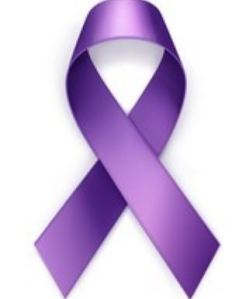

By Nicole D. Batey
Special to the AFRO
At 7:30 p.m. on July 27, 2014, Rev. Dr. Jasmin “Jazz” Duckett was washing her granddaughter’s parked car in front of her Park Heights home. Suddenly, out of the corner of her eye Rev. Dr. Duckett saw a green car heading straight towards her. She thought, “Oh no, she is going to hit me.” Within seconds, she was struck, knocked on top of the driver’s car window.
Rev. Dr. Duckett flew about 10 feet and landed flat on her back and head in the street, unable to move or speak. Although she hated getting hit by that car and spending eight days in the hospital, Rev. Dr. Duckett will tell you that it was a blessing in disguise because it led to her pancreatic cancer being diagnosed.
Pancreatic cancer is a silent killer. Most people do not realize they have it until symptoms are manifested in late stages when it is too late for treatment. Rev. Dr. Duckett was one of the blessed persons in the 6% survival rate.
The pancreas is a glandular organ located in the abdomen. It makes pancreatic juices, which contain enzymes that aid in digestion and it produces several hormones, including insulin. The pancreas is surrounded by the stomach, intestines and other organs.
Several months later after the accident, Rev. Dr. Duckett started suffering from severe nausea. Her sister, Deborah Tibbs, noticed that her eyes had turned yellow. “I called my primary doctor who was on vacation at the time and he told me to go to Patient First. There, they took blood work as part of my assessment. The very next day a medical professional at Patient First called me and told me to urgently get to the emergency room. My brother, Michael, rushed me to Sinai Hospital, where I was immediately admitted.”
Doctors thought, at first, that Rev. Dr. Duckett had jaundice caused by her gall bladder. Upon further diagnosis and testing they determined she had a malignant cancer tumor of pancreatic cancer.
Prior to her diagnosis in 2014, Rev. Dr. Duckett had celebrated her 63rd birthday a couple months earlier. She had also recently retired from the State of Maryland and was working part-time, as well as enrolled in the Baltimore School of The Bible.
“At that time, I was eating a lot of junk food, fast food, drinking soda particularly ginger ale with most of my meals. I weighed about 210 lbs, obese and was diabetic. I was not exercising at all,” said Rev. Dr. Duckett.
Also, she explained that she had little support from her physician regarding her weight gain and diabetes. “He didn’t even give me information on a proper diet for controlling my diabetes. He mainly treated me with medication.”
Questions weren’t encouraged by her former physician and she didn’t feel comfortable asking. Lab testing done through her doctor’s office wasn’t very extensive either.
This speaks to a larger issue at hand in the healthcare system. Black and minority communities already struggle disproportionately with health insurance coverage gaps, unequal access to services and high cancer mortality.
Rev. Dr. Duckett advises people to, “Choose a physician who cares and will provide updated information. Make sure they are thorough with examinations and tests and don’t be afraid to ask questions. Physicians should be willing to look at your whole body, not just focus on treating one area. In my case, he only focused on the diabetes, so he could just keep treating me with medication. One of the biggest mistakes I made was not changing physicians sooner.”
Pancreatic cancer is a very aggressive cancer and aggressive treatment is necessary. Most persons die within three months to a year from diagnosis. Statically, there was only a 6% survival rate. This metastatic disease leads to liver cancer and cancer of the lymphatic system through lymph nodes.
Pancreatic cancer has the highest mortality rate of all major cancers. For all stages combined, the five-year relative survival rate is 10%. There are four progressive stages of pancreatic cancer. It is estimated that the average T1 stage of pancreatic cancer progresses rapidly to the T4 stage in just over one year. Rev. Dr. Duckett’s was diagnosed at stage T3. Today, the survival rate is 10%. Not much progress has been made.
Rev. Dr. Duckett was hospitalized in intensive care, and underwent Whipple surgery, performed by the head of Sinai’s Gastrology Surgery Department, to remove the head of her pancreas. The surgery lasted seven hours, and she was administered 12 blood transfusions.
When released 21 days after surgery, Rev. Dr. Duckett’s treatment plan included 30 days of radiation (3 times weekly). Radiation was then followed by 30 days of chemotherapy (one chemical infusion weekly) with simultaneous daily medications. “At one point, my white blood cells were aggressively attacking my red blood cells, and I was administered a $5,000 one-time shot,” say Rev. Dr. Duckett.
After more than five years of intensive follow-up treatment, including frequent CAT scans, Rev. Dr. Duckett is happy to report that she is now in full remission and in her seventh survival year. “Today, I eat whole foods and I am reaching and maintaining my weight at 150 lbs. I am cancer free, controlling and managing my diabetes. I believe my diabetes was caused by eating junk foods and fast food, and drinking a lot of soda. My diabetes and obesity caused the pancreatic cancer.”
“I know as women, we can be so busy—raising children, taking care of others, working one or more jobs, taking care of business, and it’s easy to just pick up some fast food for lunch or dinner, but we have to take better care of our health. Make sure that you’re eating the right foods and doing what you need to do to take care of you,” says Rev. Dr. Duckett.
Her advice to everyone, especially women:
- Eat whole foods (i.e. Fresh vegetables, less sugary fruits like berries, lean proteins, and whole grains)
- Avoid sugary drinks, especially those with high fructose corn syrup
- Cut out eating a lot of junk food and overly processed food high in refined flour, sugar, or saturated fats.
- Look for lean proteins (limit red meat, poultry, and fish). Avoid processed meats, especially those with nitrates, which studies have shown contain carcinogens that have been linked to causing different cancers.
- When you look at your plate, it should have mostly vegetables on it with smaller portions of protein and carbs.
- Everything you eat should give you nutrients. That’s why it’s important read the label on food products, so you can know what you’re eating. “I think if you can’t pronounce it, then don’t eat it.”
- Also, get involved with exercising. Start out walking, it doesn’t matter the pace—you don’t have to be fast—just keep moving.
Rev. Dr. Duckett is not bitter about what happened to her, she’s better. She even wrote a poem about her experience. (See below.) “Even though healthy food is more expensive, I’d rather pay the farmer than the pharmacist.”
THE LORD WILL MAKE A WAY
By Rev. Dr. Jasmin Duckett
On October 25, 2014 I suffered pancreatic cancer with great pain and much sorrow.
Laying 21 days in a hospital bed, I could not see my yesterday or even think about a tomorrow.
I just lived in the moment and followed the rigorous treatment of each uncertain day.
Family and close friends helped me pray this deadly disease away!
Despite the doctors’ reports read with such dismay, God healed me to be okay.
Now, I am miraculously surviving almost 7 years to this October 25th day.
I live and thrive each and every day.
Because every day I pray. And I say,
“Come what may,
I know ‘THE LORD WILL MAKE A WAY!’ ”
Help us Continue to tell OUR Story and join the AFRO family as a member – subscribers are now members! Join here!
The post Car accident turns out to be a ‘blessing in disguise’ appeared first on AFRO American Newspapers .











